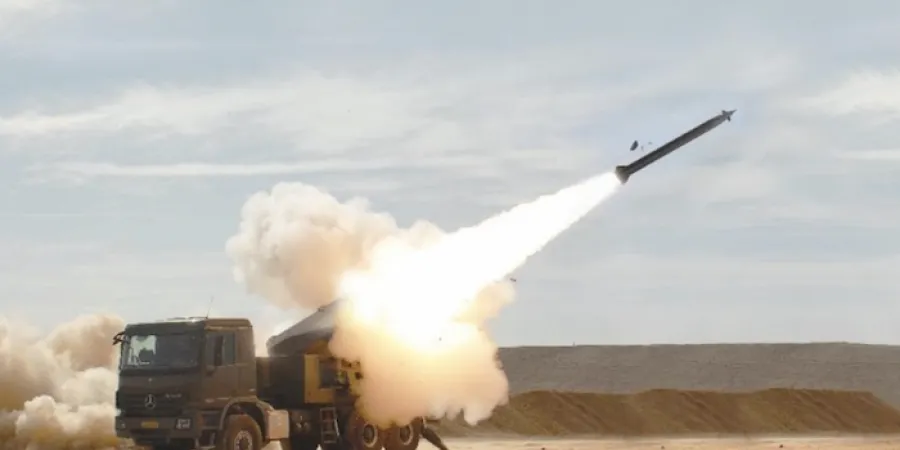Elbit's PULS Selected as Spanish Army's Mobile Rocket Launcher
The Spanish Military Procurement Directorate awarded a contract worth nearly €700 million for the manufacturing and supply of these systems to the Spanish Army to a consortium of Spanish companies developing a Spanish rocket launcher based on the PULS
Eyal Boguslavsky
| 24/12/2023
The Spanish General Subdirectorate of Acquisitions of Armaments and Materials (DGAM) awarded last weekend a nearly €700 million contract for the supply of High Mobility Rocket Launcher Systems to the Spanish Army. The manufacture and supply of the systems will be conducted by a temporary business consortium including Spanish companies Escribano Mechanical & Engineering and Rheinmetall Expal Munitions that develop a Spanish Rocket Launcher based on Israeli Elbit Systems' PULS (Precise & Universal Launching System), designated Silam in Spain.
The delivery of launchers and training rockets will begin in 2024, and live munitions are expected from 2025. The final batches of rockets are scheduled to be delivered to the army by 2028.
Beyond the supply of twelve launchers, the package includes a range of support vehicles and systems, 12 munition vehicles with cranes, two recovery vehicles, six high mobility reconnaissance vehicles, ten different types of command post vehicles, and a rocket launcher platform for testing and validating the ammunition.
According to Army Recognition, in terms of ammunition, the Spanish Ministry of Defense plans to purchase an initial batch of 680 rockets. This includes 288 guided rockets with a 35 km range (split between fragmentation and penetration types), 16 launch pods; 112 guided rockets with a range of up to 150 km (again split between fragmentation and penetration types), 28 pods; 64 rockets with a range of up to 300 km, and 32 pods; plus 216 training rockets with a range of 7 to 15 km.
The purchase also includes multifunction radars and high-performance tactical drones for target location and identification, as well as loitering ammunition.
The Spanish Military Procurement Directorate awarded a contract worth nearly €700 million for the manufacturing and supply of these systems to the Spanish Army to a consortium of Spanish companies developing a Spanish rocket launcher based on the PULS
The Spanish General Subdirectorate of Acquisitions of Armaments and Materials (DGAM) awarded last weekend a nearly €700 million contract for the supply of High Mobility Rocket Launcher Systems to the Spanish Army. The manufacture and supply of the systems will be conducted by a temporary business consortium including Spanish companies Escribano Mechanical & Engineering and Rheinmetall Expal Munitions that develop a Spanish Rocket Launcher based on Israeli Elbit Systems' PULS (Precise & Universal Launching System), designated Silam in Spain.
The delivery of launchers and training rockets will begin in 2024, and live munitions are expected from 2025. The final batches of rockets are scheduled to be delivered to the army by 2028.
Beyond the supply of twelve launchers, the package includes a range of support vehicles and systems, 12 munition vehicles with cranes, two recovery vehicles, six high mobility reconnaissance vehicles, ten different types of command post vehicles, and a rocket launcher platform for testing and validating the ammunition.
According to Army Recognition, in terms of ammunition, the Spanish Ministry of Defense plans to purchase an initial batch of 680 rockets. This includes 288 guided rockets with a 35 km range (split between fragmentation and penetration types), 16 launch pods; 112 guided rockets with a range of up to 150 km (again split between fragmentation and penetration types), 28 pods; 64 rockets with a range of up to 300 km, and 32 pods; plus 216 training rockets with a range of 7 to 15 km.
The purchase also includes multifunction radars and high-performance tactical drones for target location and identification, as well as loitering ammunition.



